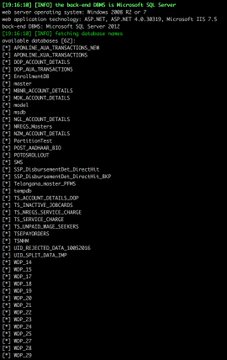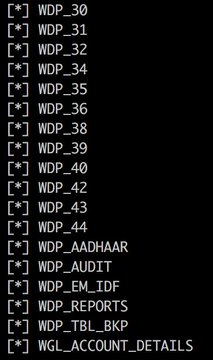Why this Blog ? News articles in the Wide World of Web, quite often disappear with time, when they are relocated as archives with a different url. Archives in this blog serve as a library for those who are interested in doing Research on Aadhaar Related Topics. Articles are published with details of original publication date and the url.

Aadhaar
The UIDAI has taken two successive governments in India and the entire world for a ride. It identifies nothing. It is not unique. The entire UID data has never been verified and audited. The UID cannot be used for governance, financial databases or anything. It’s use is the biggest threat to national security since independence. – Anupam Saraph 2018
When I opposed Aadhaar in 2010 , I was called a BJP stooge. In 2016 I am still opposing Aadhaar for the same reasons and I am told I am a Congress die hard. No one wants to see why I oppose Aadhaar as it is too difficult. Plus Aadhaar is FREE so why not get one ? Ram Krishnaswamy
First they ignore you, then they laugh at you, then they fight you, then you win.-Mahatma Gandhi
In matters of conscience, the law of the majority has no place.Mahatma Gandhi
“The invasion of privacy is of no consequence because privacy is not a fundamental right and has no meaning under Article 21. The right to privacy is not a guaranteed under the constitution, because privacy is not a fundamental right.” Article 21 of the Indian constitution refers to the right to life and liberty -Attorney General Mukul Rohatgi
“There is merit in the complaints. You are unwittingly allowing snooping, harassment and commercial exploitation. The information about an individual obtained by the UIDAI while issuing an Aadhaar card shall not be used for any other purpose, save as above, except as may be directed by a court for the purpose of criminal investigation.”-A three judge bench headed by Justice J Chelameswar said in an interim order.
Legal scholar Usha Ramanathan describes UID as an inverse of sunshine laws like the Right to Information. While the RTI makes the state transparent to the citizen, the UID does the inverse: it makes the citizen transparent to the state, she says.
Good idea gone bad
I have written earlier that UID/Aadhaar was a poorly designed, unreliable and expensive solution to the really good idea of providing national identification for over a billion Indians. My petition contends that UID in its current form violates the right to privacy of a citizen, guaranteed under Article 21 of the Constitution. This is because sensitive biometric and demographic information of citizens are with enrolment agencies, registrars and sub-registrars who have no legal liability for any misuse of this data. This petition has opened up the larger discussion on privacy rights for Indians. The current Article 21 interpretation by the Supreme Court was done decades ago, before the advent of internet and today’s technology and all the new privacy challenges that have arisen as a consequence.
Rajeev Chandrasekhar, MP Rajya Sabha
“What is Aadhaar? There is enormous confusion. That Aadhaar will identify people who are entitled for subsidy. No. Aadhaar doesn’t determine who is eligible and who isn’t,” Jairam Ramesh
But Aadhaar has been mythologised during the previous government by its creators into some technology super force that will transform governance in a miraculous manner. I even read an article recently that compared Aadhaar to some revolution and quoted a 1930s historian, Will Durant.Rajeev Chandrasekhar, Rajya Sabha MP
“I know you will say that it is not mandatory. But, it is compulsorily mandatorily voluntary,” Jairam Ramesh, Rajya Saba April 2017.
August 24, 2017: The nine-judge Constitution Bench rules that right to privacy is “intrinsic to life and liberty”and is inherently protected under the various fundamental freedoms enshrined under Part III of the Indian Constitution
"Never doubt that a small group of thoughtful, committed citizens can change the World; indeed it's the only thing that ever has"
“Arguing that you don’t care about the right to privacy because you have nothing to hide is no different than saying you don’t care about free speech because you have nothing to say.” -Edward Snowden
In the Supreme Court, Meenakshi Arora, one of the senior counsel in the case, compared it to living under a general, perpetual, nation-wide criminal warrant.
Had never thought of it that way, but living in the Aadhaar universe is like living in a prison. All of us are treated like criminals with barely any rights or recourse and gatekeepers have absolute power on you and your life.
Announcing the launch of the # BreakAadhaarChainscampaign, culminating with events in multiple cities on 12th Jan. This is the last opportunity to make your voice heard before the Supreme Court hearings start on 17th Jan 2018. In collaboration with @no2uidand@rozi_roti.
UIDAI's security seems to be founded on four time tested pillars of security idiocy
1) Denial
2) Issue fiats and point finger
3) Shoot messenger
4) Bury head in sand.
God Save India
Wednesday, February 28, 2018
12910 - French researcher uses simple hack to access Telangana government site with lakhs of Aadhaar details - Scroll.In
12909 - Cakewalk for French tech-wiz, Aadhaar and Telangana portal easy hack - TNN
12908 - Can India's Biometric Identity Program Aadhaar Be Fixed? - Electronic Frontier Foundation
12907 - Aadhaar Articles Dated 28th February 2018
|
|
EFF
The Supreme Court of India has commenced final hearings in the long-standing challenge to India's massive biometric identity apparatus, Aadhaar. Following last August's ruling in the Puttaswamy case rejecting the Attorney General's contention that privacy was not a fundamental right, a five-judge ...
|
|
||||
|
|
Business Line
The next screen will ask your name as in the Aadhaar card. (If you don't have Aadhaar, you can complete your KYC through Passport, Voter ID,Driving Licence or NREGA Job Card.) In the next screen, you will have to enter the Aadhaar OTP received in your mobile. Once you enter the OTP, the next ...
|
|
||||
|
|
Moneycontrol.com
If you are carrying a smartphone, you can link your EPF account with Aadhaar easily. ... The Employees' Provident Fund Organisation (EPFO) has now introduced UAN-Aadhaar linking facility for members through the UMANG Mobile ... To link your Aadhaar you need to click on the 'eKYC Services' tab.
|
|
||||
|
|
Economic Times
"Out of 23 crore ration cards in the country, 82 per cent (19 crore) are linked with Aadhaar. We have removed 2.95 crore fake or duplicate ration cards in the country in the past three years which has resulted in a saving of Rs 17,000 crore annually. It has ensured that foodgrains are being delivered to the ...
|
|
||||
|
|
Moneycontrol.com
The government is planning to link driving licences with Aadhaar number in order to weed out fake licences. CNBC TV18 @moneycontrolcom. Error loading player: No playable sources found. The government is planning to link driving licences with Aadhaar number in order to weed out fake licences.
|
|
||||
|
|
NDTV
Want to change the information displayed on your Aadhaar profile on DigiLocker? Well, subscribers can now easily store their Aadhaar card with DigiLocker and in case he/she wants to make any changes to this data, it is advisable to visit nearest Aadhaar enrolment center, said official twitter handle of ...
|
|
||||
|
|
Business Today
Tomorrow is the last day for mandatory KYC-compliance by prepaid wallet customers and the Reserve Bank of India (RBI) has refused to extend the deadline a second time saying "sufficient time has already been given to meet the prescribed guidelines". To remind you, the 55 non-banking prepaid ...
|
|
||||
|
|
Times of India
HYDERABAD: A French security researcher on Monday breached the Telangana government benefit disbursement portal 'TSPost' and lay bare its vulnerabilities. The portal has account details including Aadhaar numbers of 56 lakh beneficiaries of NREGA (National Rural Employment Guarantee ...
French researcher uses simple hack to access Telangana government site with lakhs of Aadhaar ... - Scroll.in
French Security Researcher Lays Bare Aadhaar Details Of Lakhs Of People In Telangana - Outlook India
|
|
||||
|
|
Times of India
“Everyone asks to see our Aadhaar cards. We do not have access to any government benefit because we do not have valid identity proof. Without an education, what chance does my child really have?” asks the 30-year-old as she pulls out a tattered box containing her most valuable possessions.
|
|
||||
|
|
Times of India
New Delhi, Feb 27 () IT and Law Minister Ravi Shankar Prasad today said he is in talks with Union Minister Nitin Gadkari to expedite the process of linking motor vehicle driving licences with biometric identifier Aadhaar. "I am taking with Nitin Gadkari ji to finalise the linking up all the motor mehicle driving ...
|
|
||||
|
|
Times of India
NAGPUR: Aadhaar registration of newborns at Daga Memorial Hospital has stopped even as only 192 children were registered for Aadhaar since the pilot project began in April 2017 in collaboration with state health department, said medical superintendent Seema Parvekar. Over 1,200 deliveries take ...
|
|
||||
|
|
Moneycontrol.com
IT and Law Minister Ravi Shankar Prasad said he is in talks with Union Minister Nitin Gadkari to expedite the process of linking motor vehicle driving licences with biometric identifier Aadhaar. "I am taking with Nitin Gadkari ji to finalise the linking up all the motor vehicle driving licences with Aadhaar," ...
|
|
||||
|
|
Times of India
In her complaint, Mridula told officers that she got a call on her mobile phone from an unknown number and the caller told her that he will help her link her Aadhaar card with her bank account. “He asked me about my card details and after I gave him the information, he asked my mobile phone number for ...
|
|
||||
|
|
MediaNama.com
Bangalore-based payments solutions company Ezetap has launched an open-platform, GPRS based point-of-sale (PoS) terminal called EzeSmart, which is Aadhaar Pay enabled and has eKYC (Know Your Customer) authentication option as well. EzeSmart also supports other payment modes such as ...
Ezetap launches EzeSmart, India's 1st Aadhaar Pay enabled POS and eKYC terminal. Here's how ... - YourStory.com
|
|
||||
|
|
Hindustan Times
In a world where giving a unique identity to each citizen remains the avowed mission of the establishment, those unable to get the Aadhaar card themselves — even for reasons not under their control — are paying a heavy price. Consider this: Vijay Dhamija, 26, a resident of Ganaur block, in Sonepat, ...
|
|
||||
|
|
Firstpost
Mumbai: The Bombay High Court has refused to defer the 31 March deadline imposed by the Union government for linking Aadhaar to ration card. A bench of justices Shantanu Kemkar and Rajesh Ketkar, however, directed the Maharashtra government to look into the grievances of technological ...
|
|||||
12906 - French Security Researcher Lays Bare Aadhaar Details Of Lakhs Of People In Telangana - OutLook India
French Security Researcher Lays Bare Aadhaar Details Of Lakhs Of People In Telangana

In theory, a government website is very secure but in #India it's another story...http://tspost.aponline.gov.in is vulnerable to a basic SQL injection...
http://tspost.aponline.gov.in is vulnerable to a basic SQL (structured query language) injection," he wrote on twitter.
I don't know if I have to laugh or cry. http://tspost.aponline.gov.in owners fixed the issue by putting offline the website







